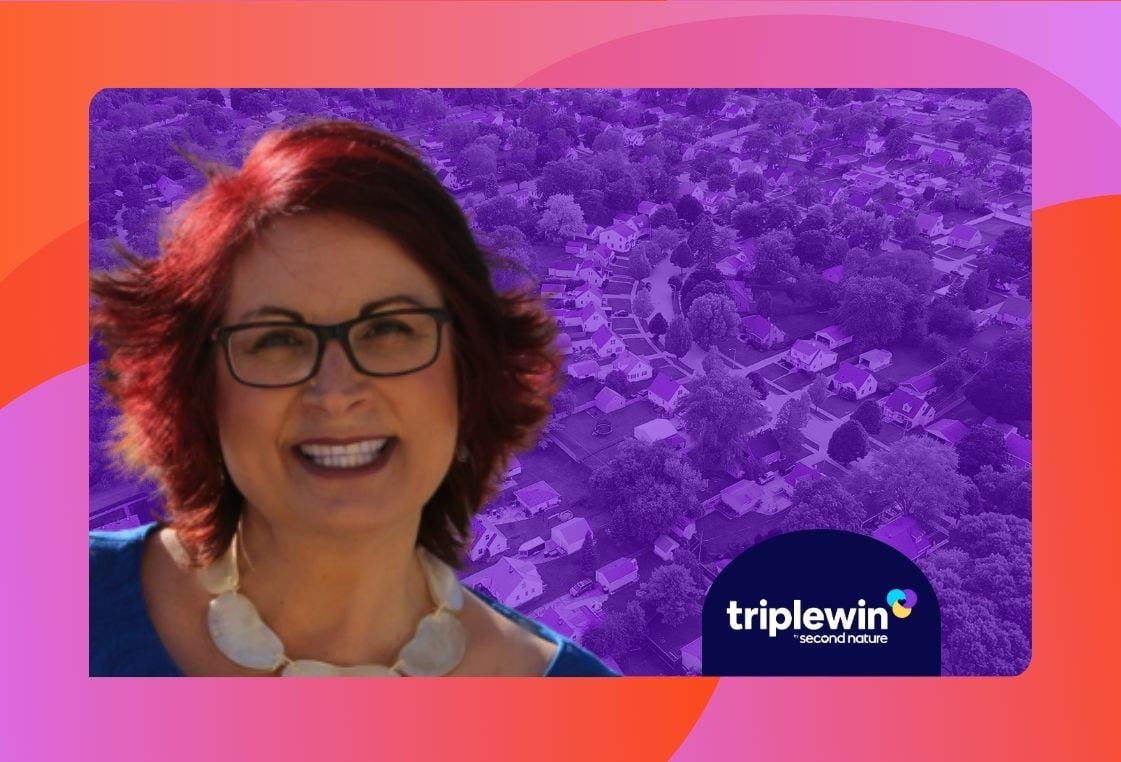There are as many different perspectives on property management business plans as there are different PM businesses. But one thing holds true – in the classic adage usually attributed to Dwight D. Eisenhower – it’s not the plan that matters so much as the planning.
Outlining a detailed business plan isn’t just important for defining your own goals, it’s key to communicating those to potential clients and investors. It also requires deep insight into what residents want and are willing to pay for.
Whether you’re new to property management, have been managing properties for years and are ready to start your own business, or own property management business but are looking for greater investment, we’ll cover important topics to address business plan creation.
We’ll explain why business planning can be so important, as well as who to target with your plan. We’ll also share a free template to get you started.
Key Learning Objectives:
- How to identify and find your ideal clients
- How to articulate your value proposition
- What to include in your business plan
- How to outline your business plan
- A free property management business plan template
Meet the Expert: Peter Lohmann, CEO RL Property Management

What to Know before Creating a Property Management Business Plan
Not to get too deep down the rabbit hole, but the first step to creating a high-quality business plan is – you guessed it – to make a plan for the plan. For entrepreneurs, planning is the key to success.
Going through the following steps first will make the process much easier and more effective in the long run. Here’s what you need to get clear at the outset.
State Laws governing property management business
As you know, each property management company’s approach is very dependent on regional or state regulations. Before taking any steps to either start or change your business, you need to have a clear understanding of the local laws governing your business venture.
We highly recommend hiring an attorney who can help you navigate those laws and regulations.
Who are your ideal clients
Lohmann lays out three critical steps to crystalizing a successful business plan:
- Identify your ideal clients.
- Articulate your unique value proposition for those clients.
- Go out and find leads.
So, first: Who are your ideal new clients?
“Get really clear on who your ideal customer is,” Lohmann says. “Are you managing associations, office buildings, big apartments, single-family rentals, etc.? The narrower and more specific you can be, the better your life is going to be and the more money you’re going to make.”
In other words, anything outside of this target market is going to be a waste of your time. That’s why this is the first step.
“The more narrow and specific you can be here, the more directly you can speak to your prospects in a way that’s compelling,” Lohmann says. “Everything becomes easier – content strategy, sales conversations, even operations become easier – if you know who you want to manage for and what types of properties you want to manage.”
What type of property management company you are
The next step is to identify your unique value proposition. There are tons of property management companies out there. Why should your ideal client choose you?
In Lohmann’s words: “Your second step is to ask, ‘Why should anyone care?’ Property management isn’t a new concept; there are tons of property managers. So, identify what your unique value proposition is.”
This is key to figuring out not just who to pitch to but how to pitch to them.
“What are you going to talk about?” Lohmann says. “You can’t just say, ‘Oh, hire us, we’re the best!’ You need clear examples that say, ‘Our company does something a little different.’”
For RL Property Management, that started as a promise that they would never charge a leasing fee.
“Sure, it’s kind of crazy, and I don’t know anyone else who doesn’t charge that, but it worked,” Lohmann says. “We were trying to figure out why everyone hated their property manager. And we decided that it might be an incentive problem where the property manager’s incentive is to fill the unit as quickly as possible so they can get that big leasing fee, and that was creating bad outcomes for property owners. So we decided that we weren't going to charge a leasing fee, and we've stuck with it ever since.”
How to find your ideal clients
The third and final step of preparation is to identify where you need to go out and find leads and engage property management marketing.
“Given what you know about how you defined your ideal prospect and your company and what they offer, the next question is where you go and get these leads,” Lohmann says.
“A lot of property managers start with this third step. They just say, ‘How can I get more leads?’ But that’s the wrong question. Why do you deserve those leads? Answer that first. Downstream of that is ‘Where are those people hanging out, and how can I get this to them?’”
Getting this step right involves researching property management and real estate property in your area and getting familiar with industry news, conferences, and listings.

What should a property management business plan include?
Now, let’s talk about the actual outline of your PM business plan. If you’re starting a new business and aiming to present a business plan to investors, or even business partners, you should outline each section below as a presentation deck. The information presented in this section needs to read like it is designed for investors and should highlight key terms and concepts they care about.
Here’s a sample property management business plan outline, followed by a detailed explanation:
- Executive Summary
- Company Overview
- Market Analysis (Industry, Customer, and Competitive Analysis)
- Services
- Marketing Plan & Sales Strategy
- Operations Management
- Management Team
- Financial Plan
- Growth Opportunities
Executive Summary
This is a high-level overview of your entire presentation. As such, it should be the last section that you write. You want to be concise but interesting and hook the reader quickly. Outline the following in broad strokes:
- The type of property management company you are operating
- Your target market
- Your objectives
- Your plan for meeting these objectives
Company Overview
The company overview will dive deeper into your property management niche and business model. Explain what types of properties you manage and how you operate. Options include single-family residential property management (SFR), multi-family property management (MFR) or residential apartments, HOA management, and commercial property management.
Give a brief history of your company and your legal business structure. Other important information might include:
- Your key competitive differentiators and core competencies
- Your metrics for success
- Your management team
- Financial details
- Mission and vision statements
Market Analysis (Industry, Customer, and Competitive Analysis)
This section benefits you almost as much as it does your audience. Researching for this section will help you more deeply understand the industry, customers, and competition.
- Industry analysis should include details on the trajectory of the market, its size, and key trends, along with challenges and opportunities.
- Customer analysis should include details about your target customers, their wants and needs, etc.
- Competitive analysis should outline direct competitors (PMCs in your area) and indirect competitors like in-house managers, automated tools, etc. Explain why your value proposition is unique. Ideally, present a thorough SWOT (strengths, weaknesses, opportunities, threats) analysis.
Services
This section should describe the property management services the company plans to offer, such as leasing, maintenance, and rent collection. Depending on the jurisdiction, legal compliance and documentation services may be relevant as well. This section should also discuss the pricing strategy for these services.
Marketing Plan & Sales Strategy
This section should describe the company's marketing plan and sales strategy, including how it plans to attract and retain clients. It should also discuss any advertising or promotional campaigns the company plans to undertake. Promotions could include paid advertising in print and on websites, social media marketing, radio advertising, SEO marketing, and more.
Here, it’s important to document your marketing channels (organic online, targeted online, print advertising, professional networking) as well as ongoing sales and marketing programs.
Operations Management
Outline your short-term processes and long-term business goals, as well as estimate day-to-day operations. What property management software are you using in the business? What bottlenecks slow down work that’s moving through the organization? How will you structure your company and your teams?
It may also be helpful to include details on critical process workflows, risk mitigation strategies, and technology integrations and updates.
Management Team
Outline your management structure and the skills and experience of your management team. You’ll particularly want to highlight property management and real estate experience. This is a key moment for you to consider who you have in the company, who is a right fit, and who needs to be looked at as not a great fit.
Financial Plan
This is where you give your financial projections and approach. Outline your major cost centers and revenue drivers. What management fees are you going to charge? You should include a profit and loss statement, balance sheets, and a cash flow statement.
Growth Opportunities
Identify and outline the most targeted growth opportunities for your business right now and over the next five and ten years. Knowing your long-term goals requires you to gain a deep understanding of the real estate and property management market in your area and to understand clearly where you fit in and how you can generate growth and value for years to come.
Typically, in this section you might include:
- Expansion plans
- Strategic alliances
- Technology upgrades
- Emerging market trends
Property Management Business Plan Free Template
Although you may prefer to draft your own property management business plan from scratch, there are a couple of options for short-cutting the process.
You can use the checklist below to organize your plan, or else simply download our free PMC business plan template to customize as you see fit.
Executive Summary
- The type of property management company you are operating
- Your target market
- Your objectives
- Your plan for meeting these objectives
Company Overview
- Mission and vision statements
- Your property management niche and business model
- How you operate
- Company history
- Your legal business structure
- Your key competitive differentiators and core competencies
- Your metrics for success
- Your management team
- Financial overview
Market Analysis
- Industry assessment
- Customer analysis
- Competitive analysis
Services
- Marketing Plan & Sales Strategy
- Outline of sales and marketing plans
- Marketing channels
- Ongoing sales and marketing programs
Operations Management
- Long-term business goals
- Current processes
- Critical process workflows
- Risk mitigation strategies
- Technology integrations and updates
Management Team
- Management structure
- Skills and experience
Financial Plan
- Financial projections
- Cost centers and revenue drivers
- P&L statement
- Balance sheet
- Cash flow statement
Growth Opportunities
- Targeted growth opportunities
- Expansion plans
- Strategic alliances
- Technology upgrades
- Emerging market trends
Get your free PMC business plan template here.
Beyond the business plan: Focus on retention with the Second Nature RBP
At Second Nature, we work with property managers around the country to develop better resident experiences that will generate more value for their clients and more profit for their companies.
The product we have found most helpful to property managers at every stage of their company’s growth is a fully managed resident benefits package or RBP. Each product in this package aims to deliver something residents want or need and a service that helps set your PMC apart. We want to help make running your business as easy as second nature.
Topics:



